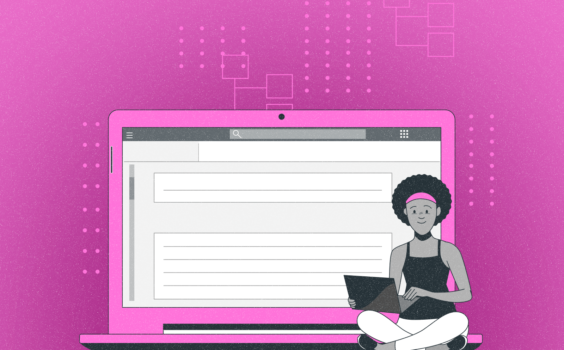Productivity vs. Efficiency: What’s More Important in the Workplace?
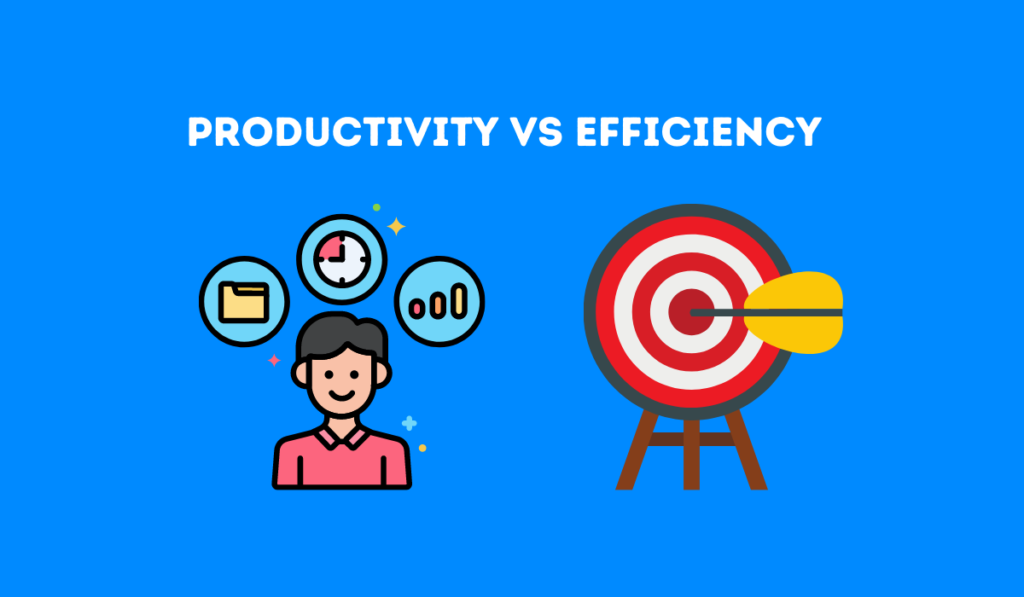
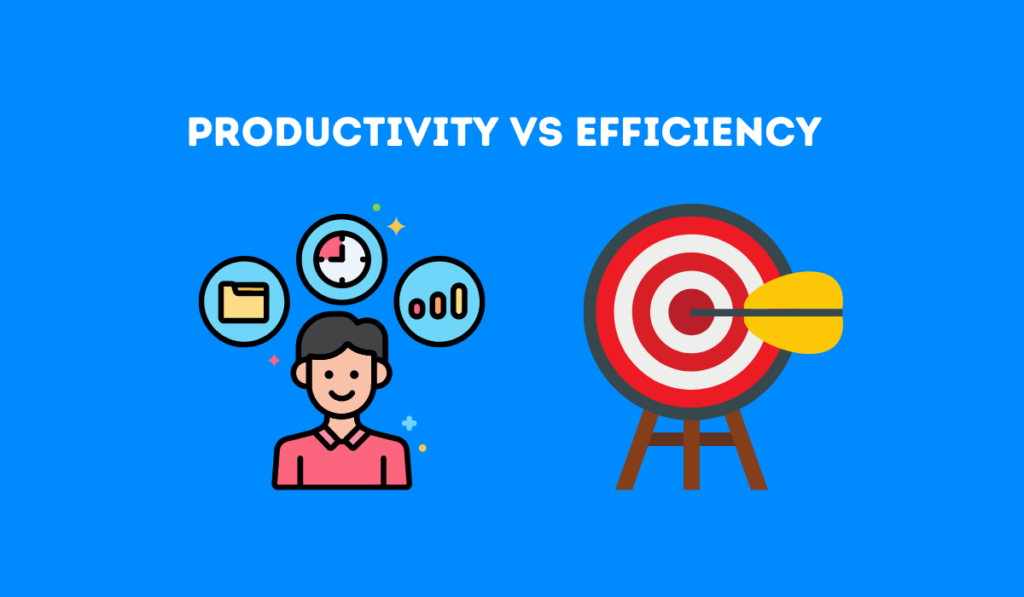
There are a lot of discussions these days about productivity vs. efficiency in the workplace. Many people believe that if we could just get more things done, we would be more successful.
However, there is another side to this story: efficiency. It is just as important to be efficient as it is to be productive. In this blog post, we will explore the difference between productivity and efficiency and which one is more important in the workplace!
What is productivity?
Productivity is a measure of the amount of work done in a certain period. Productivity is usually measured by output per hour. Companies often improve productivity when workers can focus on their tasks and can produce more results in a shorter time.
Productivity is also used to measure the efficiency of a company’s operations. Companies can increase productivity by reducing the time spent on tasks that produce less value for the organization or customer.
Productive employees are usually more motivated, have higher levels of creativity and innovation, and produce better results than those who aren’t productive at all or very little. Productivity measures both quantity (output) and quality (how well these outputs meet their intended purposes).
It’s important because it helps companies achieve their goals while minimizing costs related to labor and resources. Productivity results from many factors, including technology and management practices.
How do you measure productivity?
The simplest way to measure productivity is by dividing total output (in dollars) over total hours worked.
You can also use this metric as a rate per employee or per unit produced if your company produces goods instead of services, like most companies today.
Productivity does not have an absolute definition because it varies from one organization/industry type to another because of differences in capital intensity and labor composition patterns among different businesses.
However, there are still some generalizations that can help us understand how productive workers are within those industries with similar characteristics across borders, regardless of what industry they’re working for.
Productive employees are those who work harder, stay focused on their tasks, and don’t get distracted by social media or other distractions during working hours. It measures productivity by output per hour.
They can also use productivity as a tool for measuring efficiency in the workplace when compared to worker wages paid out.
Data productivity
…20 minutes lost after an interruption, email has been one big distraction.
University of California, Irvine
Interruptions of work time are very common in our daily lives. According to a research study from the University of California, Irvine, the average person experiences 20 minutes of loss after an interruption, email has been one big distraction that can easily take up your whole day!.
Productivity is highest when workers focus intensely on their tasks for short periods of time, followed by brief breaks.
This research supports the theory of productivity over efficiency. They define productivity as producing more output with the same amount of input as before or less. Efficiency is doing things right the first time.
It’s about getting things done quickly without making mistakes. While efficiency is important in the workplace, it should not supersede productivity. When workers are focused on completing tasks quickly rather than producing quality work, they can actually become less productive.
In order to be effective, employers should strive for a balance between productivity and efficiency in their workforce. Productivity should be the focus, with efficiency playing a supporting role. This will lead to better outcomes for both the employer and employees.
What is efficiency?
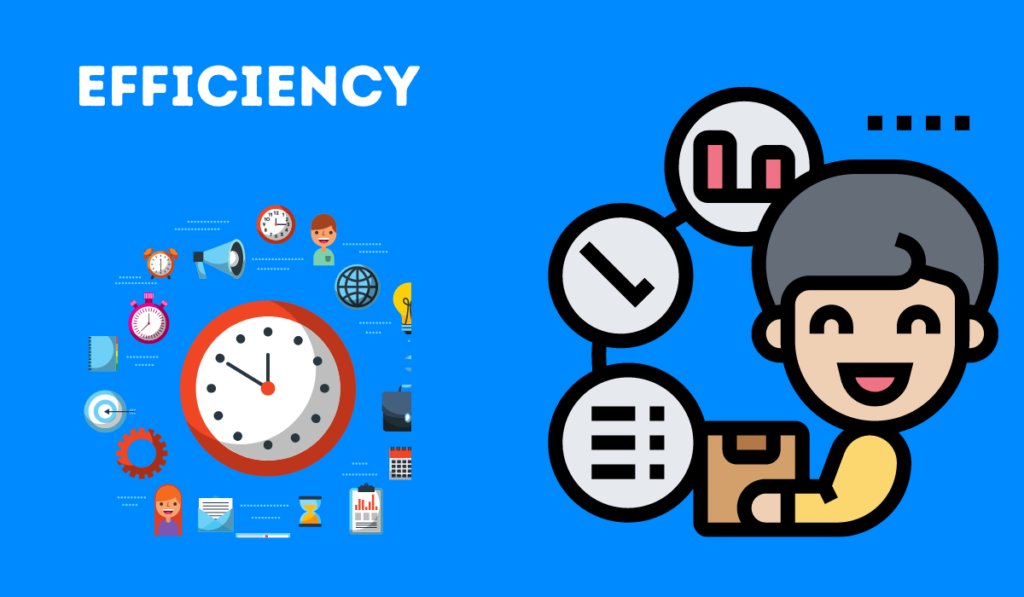
Efficiency is the capability of producing the desired result with the least amount of time and effort. Productivity is about accomplishing tasks, whereas efficiency is about doing things correctly.
For instance, if you are efficient, you would take the shortest route to get from point A to point B. Productivity may help you accomplish tasks quickly, but it does not guarantee that you completed them correctly.
Efficiency is important in the workplace because it can help save time and money. In order to be efficient, it must organize and know what needs to be done. There are many techniques that can help increase efficiency, such as breaking down tasks into smaller parts, setting deadlines, and using checklists.
How to increase productivity and efficiency at work?
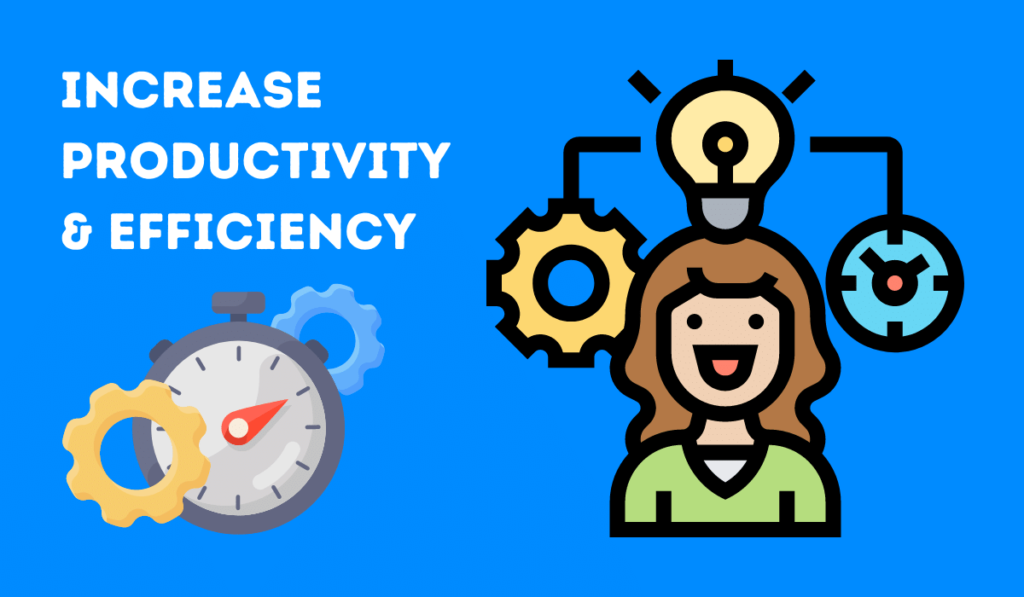
There are many ways to increase productivity in the workplace. One way is to set goals for yourself and make sure that you are working towards them. You can also break up your workday into smaller tasks and make a plan for how you will complete them.
Take temporary breaks to relax and rejuvenate, and make sure that you are organized and have all the tools you need to be productive.
Increase Productivity in project management (delivery).
Productivity can be improved by streamlining processes and eliminating waste, while efficiency can be boosted by implementing best practices and using efficient technologies. It is important to note that these two concepts are not mutually exclusive–in fact, they often go hand in hand.
Project leaders can use the following tips to increase or improve productivity:
- Evaluate work processes and identify areas where improvements can be made.
- Eliminate waste wherever possible. This may include reducing or eliminating unnecessary steps in a process, using lean principles, and optimizing resources.
- Implement best practices wherever possible. For example, if an organization has standardized work procedures, everyone will know what they expected of them, and tasks can be completed more quickly.
- Use efficient technology. Technologies such as enterprise resource planning (ERP) systems can help automate tasks and improve efficiency.
Improving efficiency at work.
While it’s important to be productive, it’s even more important to be efficient. Here are a few tips to help increase efficiency at your workplace:
1. Create a routine and stick to it. Having a set time management routine helps you focus on your tasks and eliminates distractions.
2. Organize your workspace. Keeping your workspace organized makes it easier to find what you need and eliminates distractions.
3. Taking breaks. Breaks help you to refresh and refocus, which can help you be more productive when you return to your tasks.
Get more out of your business
Get the best employee engagement content every week via mailing list
How to measure efficiency?
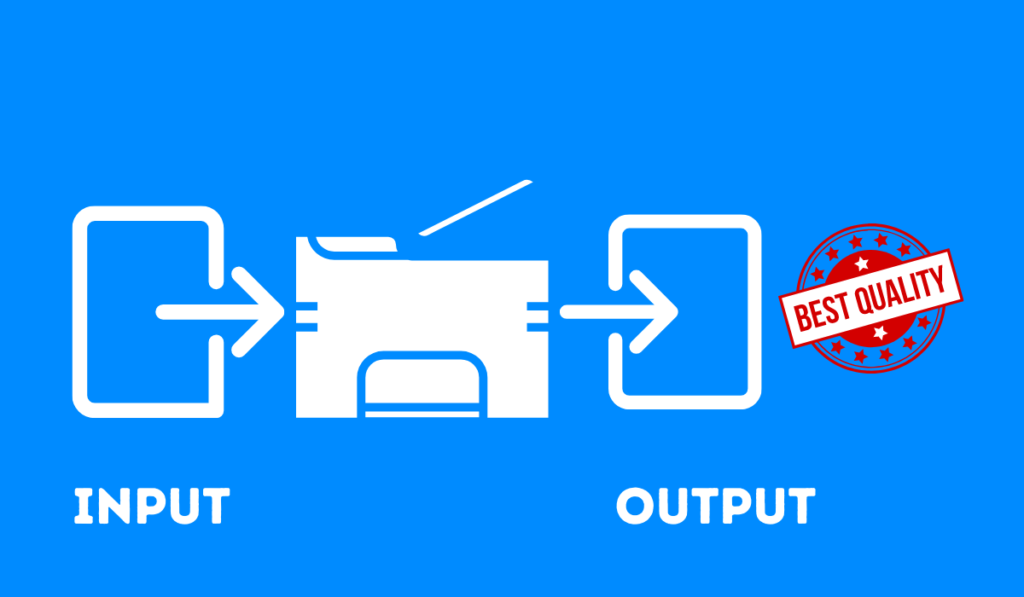
There are a few different ways that you can measure efficiency at work. One way is to track the time that you take to complete a task. Another way is to track the number of errors that you make while completing a task.
Measuring Efficiency in a Production Department
The efficiency of a production department is a measure of how much product they made in relation to the number of resources that are used. This can be measured by dividing the amount of product that is made by the number of resources that are used.
Measuring Efficiency in a Sales Department
The most common way to measure the efficiency of a sales department is to calculate the ratio of sales to employees. The formula is dividing the total sales by the number of employees.
After efficiency measures in a company, the next step is to improve it. There are many ways to improve efficiency, and the best way to find out what works best for your company is to experiment. Try different methods and see which one’s produce the best results. You may need to make some adjustments along the way, but eventually, you will find a system that works well for you and your employees.
What are some of the biggest challenges to productivity and efficiency in the workplace?
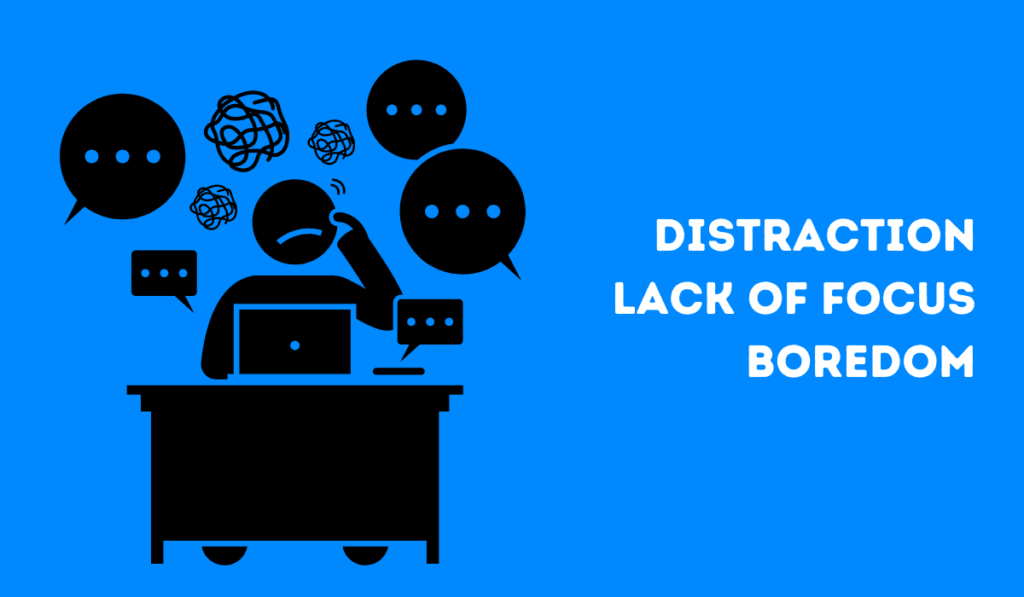
There are many factors that can affect productivity in the workplace. Some of the biggest challenges to productivity can be things like distractions, lack of focus, or boredom. However, there are also many things that can help boost productivity, such as a positive work environment, an obvious goal or purpose, and good working conditions.
It’s important to find a balance between productivity and efficiency in the workplace. Productivity is about getting things done, while efficiency is about doing things in the most effective way possible. Sometimes, increasing productivity can mean sacrificing some of your efficiency, and vice versa. Finding the right balance will depend on your individual needs and goals.
Distraction
Distractions can be a major challenge to productivity in the workplace. They can come from many sources, such as noise, people, or technology. When you’re trying to focus on a task, distractions can be very disruptive and can cause you to lose focus. This can lead to decreased productivity and increased frustration.
There are some ways to deal with distractions in the workplace. You can try to create a quiet and distraction-free work environment, or you can set boundaries for when you’re working and when you’re taking breaks. You can also try to eliminate or reduce distractions from your environment. For example, you can turn off notifications on your phone or computer, or you can put away any distractions that might tempt you. Deloitte research in the USA found 59% of employees check their smartphones very often during normal working hours.
“Always connected” consumers see line blur between work and play”
Deloitte research, USA region
Lack of focus
Lack of focus can be another major challenge to productivity in the workplace. When you’re not focused, it’s difficult to stay on task and get things done. This can lead to decreased productivity and wasted time.
There are a few things you can do to help improve your focus in the workplace. First, you need to identify what might cause you to lose focus. Are there certain tasks that are more challenging for you? Are there certain distractions that are causing you to lose focus? Once you know what’s causing your lack of focus, you can try to address those issues.
You can also try some techniques to help you stay focused. One technique is called the Pomodoro Technique, which involves breaking down your work into smaller chunks and taking breaks in between. This can help you stay focused and avoid burnout.
Boredom
Boredom can be a major challenge to productivity in the workplace. When you’re bored, it’s difficult to focus on your work and stay productive. This can lead to decreased productivity and wasted time.
There are a few things you can do to help address boredom in the workplace. First, you need to identify what might cause you to feel bored. Are there certain tasks that are more challenging for you? Are there certain distractions that are causing you to lose focus? Once you know what’s causing your boredom, you can try to address those issues.
How can you become more productive without sacrificing efficiency?
There are a few things you can do to become more productive without sacrificing efficiency. One of the most important things is to figure out what works best for you. Some people work best in a quiet, isolated environment, while others need some stimulation and noise in order to be productive. You may also need different tools or equipment to be most efficient.
We set another thing you can do with clear goals and priorities. If you know what you need to achieve and what’s most important, it will be easier to stay focused and productive. You can also break down enormous tasks into smaller, more manageable tasks, which will make them less overwhelming and more likely to be completed.
Finally, it’s important to create a positive work environment.
Set goals and priorities
When you’re trying to be productive in the workplace, it’s important to set clear goals and priorities. This will help you stay focused and avoid distractions. It will also help you to stay on track and achieve your goals.
There are a few things you can do to set clear goals and priorities. First, you need to identify what’s important to you and what you want to achieve. Once you have a clear idea of your goals, you can prioritize them and figure out what needs to be done first.
Productivity vs. Efficiency: How to Find a Balance?
Many people focus on increasing productivity in order to get more done, but if you sacrifice efficiency, then you are not really achieving anything. In fact, you may even make things worse by creating more work for yourself.
The key to balancing productivity and efficiency is to find a healthy balance between the two. You want to be productive enough to meet your goals, but not so much that you waste time or energy on things that are unnecessary.
Productivity and efficiency go hand-in-hand, so if one goes up while the other goes down, then something is wrong with your productivity levels.
Productivity and efficiency are both important in any business, but they need to be balanced properly for maximum results. If your employees are too productive at work and are leaving their jobs early because of it, then there is a problem with either their productivity or efficiency levels (or both).
If an employee works very hard all day long and gets his job done quickly, but he does not have enough time left over for the rest of his life outside of work, he may be considered “over-productive” and could be in danger of burnout.
Productivity is important, but it should not come at the expense of your life outside of work if you want to avoid the stress and anxiety caused by being overworked.
Someone who works slowly all day long might still get their job done on time (and maybe even ahead). But this person may not be using his time wisely if he does not have enough spare time left for himself or his family.
Productivity is important, but efficiency levels are just as vital if you want to live a happy and healthy lifestyle without constant pressure from your job taking away from other parts of life that matter just as much (or more than) work itself!
The Importance of Efficiency in the Workplace
Efficiency is the key to any workplace setting. When employees know what they are doing and how to do it quickly, the workflows are better overall. This allows for more time to focus on the tasks at hand instead of wasting time trying to figure out what needs to be done next.
In order for a business to succeed, both productivity and efficiency must be present in some form or another. Balancing these two traits can be difficult, but when achieved, can bring glorious rewards! Finding what works best for your business is crucial when deciding on how productive you want to be with efficiency!
The difference between productive and efficient people lies within their mentality. Productive individuals are those who always “get things done,” whereas efficient ones focus on getting them done as efficiently as possible. Productivity focuses more on output, while efficiency deals with input/resource usage.
Factors that decrease productivity or efficiency
Productivity may decrease for several reasons, including lack of motivation, stress, boredom, and health problems. Disruptions such as phone calls, people coming to talk to you, or environmental distractions can cause efficiency to decrease.
In order to boost productivity, it’s important to create a work environment that is conducive to focus and concentration. This may include setting up specific work hours, establishing boundaries between personal and professional time, and creating an organized space where everything has its place.
To boost efficiency, it’s important to minimize distractions and create an environment that allows for uninterrupted work time. This may include working from home, using noise-canceling headphones, or scheduling specific times for phone calls and meetings.
Productivity and efficiency to win the competition
Productivity is one of the most important aspects of a company. It is a strategy that they use to win the market over their competitors.
Productivity and efficiency become tools to win the market because they help a company be more efficient in how they operate. This allows them to produce more output in relation to the input that they are putting into the process. This can help them win the market over their competitors.
Technology can help improve productivity and efficiency in the workplace.
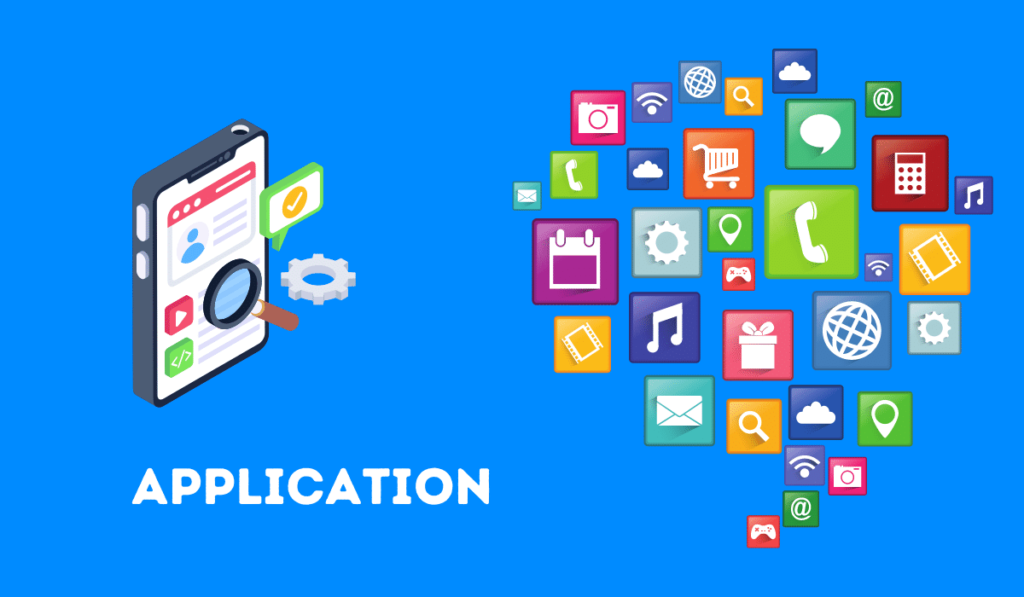
Technology can be a great help for improving productivity or efficiency in a company. By implementing tools that make employees more efficient, companies can see a significant boost in their bottom line. Here are just a few ways that technology can support improved productivity and efficiency:
1. Automation of simple tasks can free up employees’ time to focus on more important work.
2. Productivity-enhancing software can help workers accomplish more in less time.
3. Tools like video conferencing can cut down on the need for travel, saving both time and money.
4. Online collaboration tools can help team members work together more efficiently, regardless of their location.
Technology has come a long way in recent years, and there are now more tools available than ever before to help improve productivity and efficiency in the workplace. By taking advantage of these tools, companies can see a real difference in their bottom line.
How does mobile phone technology support productivity and efficiency?
Mobile phone technology has revolutionized the way we work by allowing us to be productive and efficient no matter where we are. By having access to our emails, documents, and other files on our phones, we can stay on top of our work even when we’re not in the office.
Additionally, apps like Skype, Zoom, Google Meet, and FaceTime allow us to communicate with colleagues and clients face-to-face, which can help us to resolve issues quickly and efficiently.
Other technology to improve productivity and efficiency
If the goal of these technologies is productivity, there are many things to be considered. Productivity is different for everyone and for each task, but some research shows that putting people first seems to be one of the major keystones (psychology) that improve productivity.
5th generation technology can deliver a steady, strong connection that weather or physical barriers can’t affect. Productivity will improve as these connections are much faster than current generation wireless and deliver 360-degree coverage.
Currently, cases will decrease because of the benefits of 5G technology solutions, such as
- Efficiency will change because improved sound quality allows for higher-quality calls to be made and received, meaning fewer dropped connections and clearer conversations.
- Automatic location tracking uses GPS to help find the precise location of any employee, wherever they may be, reducing the downtime caused by unclear directions or missing people.
- Simplified sharing ensures employees are able to share needed documents with others in their organization automatically, rather than tying up valuable IT resources with manual tasks. These features enable employees to work more efficiently from anywhere and connect more easily with each other in the workplace.
Technology optimization to improve productivity and efficiency.
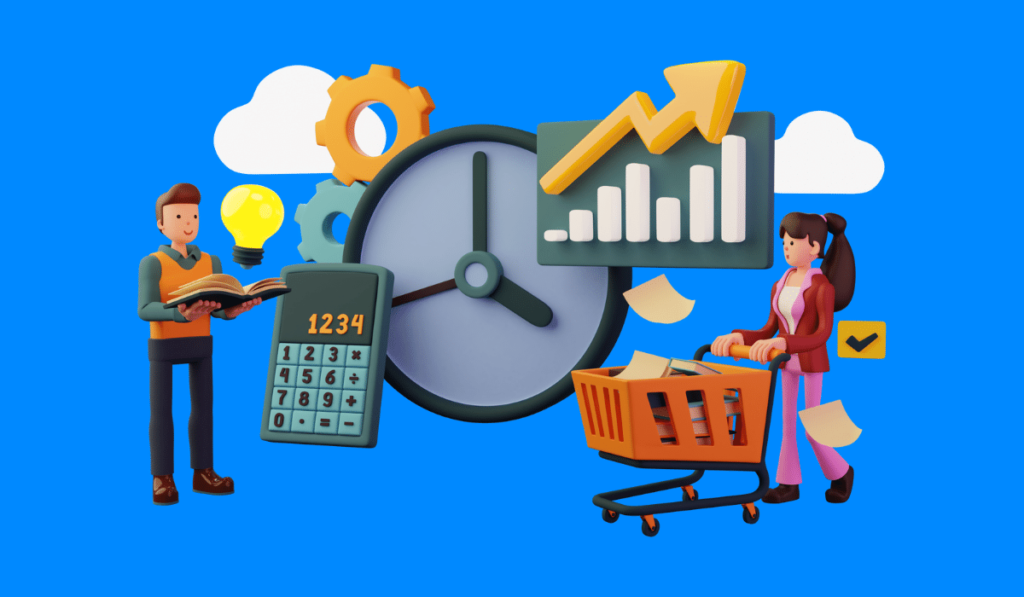
When it comes to improving productivity, there are a few key things to focus on.
The first is making sure that employees have the tools they need to do their jobs effectively. This includes everything from software and hardware to office supplies and furniture.
The second thing to focus on is workflow optimization. This involves creating a process that allows employees to complete tasks quickly and smoothly, without any wasted time or effort.
The third thing to focus on is training. Employees need to be trained on how to use the new tools and processes, and they also need to be given simple instructions on what their responsibilities are.
Once you have these three things in place, you can start seeing improvements in productivity. Productivity is essential for any business, but efficiency is not always necessary. Sometimes, it can actually hinder progress.
For example, if employees are too focused on being efficient, they may end up cutting corners or taking shortcuts that impact the quality of their work. Or they may rush through tasks without paying attention to detail, which can lead to mistakes.
In the end, it’s important to find a balance between productivity and efficiency. Productivity is essential for growth and success, but efficiency should not be at the expense of quality or accuracy.
Conclusion
Productivity and efficiency are two important concepts in the workplace. Productivity is the amount of output a worker produces relative to the input they put into their work, while efficiency is the number of resources a company uses to produce that output.
Technology can help improve productivity and efficiency in several ways, including automating simple tasks, helping workers accomplish more in less time, and allowing team members to collaborate more efficiently.
Mobile phone technology can also help workers be productive and efficient no matter where they are. By taking advantage of the latest technology tools, companies can see a real difference in their bottom line.
